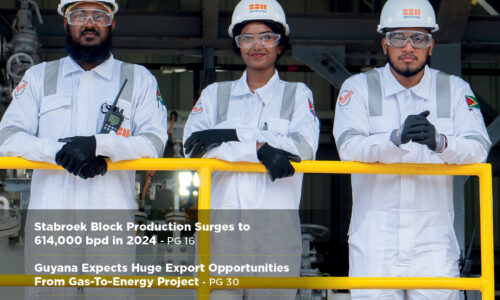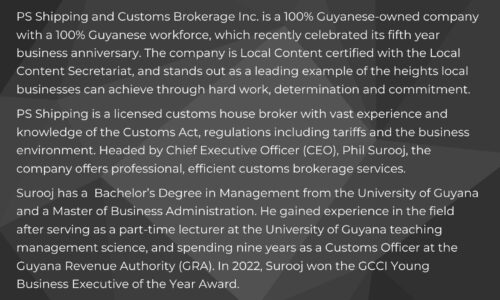GCCI President’s Remarks at the Stakeholders Consultation to Restrict the Use of Styrofoam on Monday, November 18, 2013 at Roraima Duke Lodge
Remarks by the President of the Georgetown Chamber of Commerce & Industry, Mr. Clinton Urling
Welcome and thank you to organizers and attendees…
The impact on businesses is not expected to be significant and is unlikely to amount to any economic hardship to any sector. There are several reasons for my position:
- Guyana is not a producer of Styrofoam products; they are all imported. So there is no loss to the manufacturing sector.
- We don’t have a Styrofoam recycling plant, which would have to close its operations as a result of the ban.
- The food service industry is the only one that faces adjustment and adaptations to the ban on Styrofoam. Many companies are currently using this to hold food. However, alternatives are readily available and are just as low cost or lower in some cases than polystyrene. This is as a result of the increasing global demand for more sustainable packaging; many compostable and recycled products are decreasing in cost and becoming widely available at big box stores. Use germans as example
- There are comparative examples where ban did not result in closure of restaurants or noticeably higher prices for takeout food. California, and in particular San Francisco.
- How would the all-important consumer react? To consumers, the shift is a minor inconvenience (softer boxes) but that pales in comparison to the adverse effects of Polystyrene to their health, safety and the environment. For instance, polystyrene contains toxic chemicals leak out of these products into the food that they contain (especially when heated in a microwave). These chemicals threaten human health and reproductive systems.
- Guyana has embraced a LCD strategy to be one of the greenest countries in the world and banning Styrofoam products is an easy way to show that we mean it.
Ministry should write all food service operators and inform them of the impending ban so as to give them sufficient time and notice. Duties on alternative should be zero rated for a minimum three months adjustment period and lower than the current rate for Styrofoam after the adjustment period.
Additionally, Government should encourage and offer concessions to companies willing to invest in setting up manufacturing plants for cardboard, paper, and other compostable/biodegradable materials.
I want to close with a word of caution and reminder that the proposed ban would not Reduce Litter.
Litter is a people problem, not a materials problem. Even with the banning of Polystyrene, our drains and alleyways is still vulnerable to being clogged up to their throats with debris and other discarded materials. Those who would heedlessly toss a polystyrene cup on the ground would be just as likely to do the same with a plastic cup or a paper cup. Changing the form or composition of the container is not likely to change how people dispose of it.
I want to stress that there is no environmentally acceptable form of litter and we need to ensure that there is a comprehensive policy that addresses litter with the primary aim of changing the attitudes and culture of our people. It is we the people who more than anything else should be banned from defacing and harming the environment through littering.
Finally, the biggest threat to our environment across the country and what is the biggest hindrance to our collective efforts is the malaise, mismanagement and confusion that prevail at our municipalities across the country. I cannot over emphasize the importance of holding local government elections under the four local government reform bills that were recently passed in the national assembly.
I wish for a productive session this morning. Thank you.




